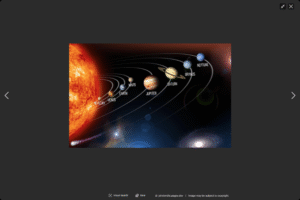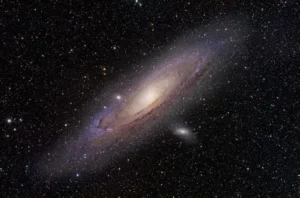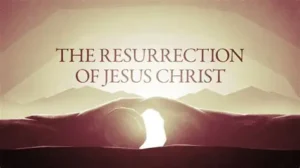The Creator God – the more prominent arguments for Divine existence.
The existence of God has been a pivotal question in philosophy and theology for millennia and numerous rational arguments have been advanced to demonstrate that belief in a Creator God is coherent, well-grounded and intellectually compelling.
God did not call us to commit intellectual suicide, in fact God tell humans to reason, He said “Come now, and let us reason together, saith the Lord:…” Isaiah 1:18a
The foregoing arguments for God’s existence each, contributes to a cumulative case for a necessary, intelligent, and morally perfect First Cause – God.
- The Cosmological Argument: The Necessity of a First Cause.
Premise: Everything that begins to exist has a cause. The universe began to exist.
Conclusion: Therefore, the universe must have a cause, an uncaused, necessary being (God).
This argument, articulated by thinkers like Thomas Aquinas and refined by modern philosophers, posits that an infinite regress of causes is impossible. There must be a metaphysically necessary being – one that exists by its own nature – to explain why there is something rather than nothing. This being is identified as God: timeless, spaceless, immaterial, and absolutely powerful.
Theological Implication: God is the uncaused Cause, the foundational reality upon which all contingent beings depend.
God revealed to us:
“God that made the world and all things therein, seeing that he is Lord of heaven and earth, dwelleth not in temples made with hands; Neither is worshipped with men’s hands, as though he needed any thing, seeing he giveth to all life, and breath, and all things; And hath made of one blood all nations of men for to dwell on all the face of the earth, and hath determined the times before appointed, and the bounds of their habitation; That they should seek the Lord, if haply they might feel after him, and find him, though he be not far from every one of us: For in him we live, and move, and have our being; as certain also of your own poets have said, For we are also his offspring.” Acts 17:24-28
“For by him were all things created, that are in heaven, and that are in earth, visible and invisible, whether they be thrones, or dominions, or principalities, or powers: all things were created by him, and for him: And he is before all things, and by him all things consist.” Colossians 1:16-17
Additional points:
‘If the universe needs a cause, then why doesn’t God need a cause?
The definition of “cause” used here is “the chief agent causing something to be made.”
Someone may quote ‘The law of causality’ which says that if everything has a cause then God must have a cause. If “everything needs a cause” then it does make sense to ask what caused God; but it is not true that everything that exists must have a cause – there is no such law that says everything must have a cause.
But anything that exists either exists in and of itself or is produced by something else. Every effect must have a cause because for something to be an effect or come into being; or in other words, every contingent or dependent must have a cause. “Contingent” means that everything that begins – or is caused – owes its origin to something else. A contingent reality is something that is caused (begins), is dependent (an effect), and lacks an explanation in itself (unexplained). A contingent reality definitely could not bring itself into existence from nothing.
That does not mean that everything that is, is contingent or is an effect. Though Self-Creation is a nonstarter, Self-Existence is not. If it’s not eternal, it’s not self-existent.
God asserts and revealed to mankind that He is an eternal being who exists in and of Himself. He is not an effect and He is not contingent. He is not created and He did not have a beginning. He is eternal and nothing produce Him. There is no law of logic that this concept violates because there is nothing baseless or irrational about the idea of an eternal uncaused being. It is reasonable and necessary that there be such a being if anything were to exist at all. Something must have the power of being independent from some precursor causal agent or nothing could exist.
The evidence for the beginning of the universe points to an external cause outside of space, time, and matter. The physical universe of space, time, and matter cannot create itself.
- The Teleological Argument: The Evidence of Design
As Voyager 1 launched by NASA in 1977 continues its galactic travel, https://youtu.be/w_T0Xt_PooM?si=NeqoVuApecbUleAS
we must not lose sight of the fact that Voyager 1 is the evidence of intelligent human design, and it did not come about by random occurrence, that it just assembled itself or evolved by itself. If Voyager 1 evidenced a human designer, then do not, the planets, stars and the Universe bears evidence of the handiwork of a Designer? Creation is shown to be intentional, ordered, and meaningful.
Premise: The universe exhibits remarkable fine-tuning (e.g., gravitational constant, cosmological constants, DNA complexity) that permits life.
The laws in physics have one highly unusual characteristic in common—they are precisely the values needed to establish and sustain a universe capable of producing life. Scientists have found some 30 constants or laws of physics that govern the universe. All are unrelated to each other and yet are finely tuned to incredible proportions to make life possible. If any were slightly off, complex structures of stars, galaxies and life on planet earth would not be possible. This is another enormous and virtually uncontested proof for a universe that has been carefully designed. The evidence points to “Someone” calibrated and tuned all of these laws, setting the parameters purposefully so they would work in unison.
The Bible revealed this truth long before any scientist discovered these facts. As Jeremiah 33:25 states, “Thus saith the Lord; If my covenant be not with day and night, and if I have not appointed the ordinances of heaven and earth; “
The quantum leap from non-living organic and inorganic chemicals to the self-replicating information-driven living cells is confoundingly and astoundingly unfathomable by science.
Biologists have found that life began with an enormous amount of precise information already embedded in the cell. The human genome alone is a molecule with approximately 3 billion genetic letters, all precisely ordered to give instructions to the cell. From the most primitive cells to human beings, all have the same basic operating system of mind-boggling complexity, with codes, transmitters and receivers all working together. Thus, from the intricate structure of DNA to the precise physical constants allowing for a life-permitting universe, the teleological argument contends that blind natural processes cannot account for such specified complexity. The odds of random fine-tuning are astronomically low to the point of zero, pointing instead to intentional design.
The Irreducible complexity of biological systems of the bacterial flagellum or the immune system for that matter, requires all their individual components to be present and functional simultaneously, as by removing any parts render the system nonfunctioning. Thus, such systems couldn’t evolve via step-by-step Darwinian processes.
Conclusion: The utter unlikelihood of life arising spontaneously through haphazard chemical processes commingled with highly developed information storage and processing in even the most rudimental cells advocate for an intelligent source for such establishment. It argues for premeditated design and intentional engineering.
Additionally, the extreme precision of the laws of physics and the fundamental constants, proclaim the existence of an intelligent Designer (God) and never the occurrence by random chances.
Theological Implication: The Designer is supremely intelligent, purposeful, and personal.
God revealed to us:
“The heavens declare the glory of God; and the firmament sheweth his handywork.” Psalm 19:1
“For the invisible things of him from the creation of the world are clearly seen, being understood by the things that are made, even his eternal power and Godhead; so that they are without excuse:” Romans 1:20
- The Moral Argument: The Foundation of Objective Goodness.
Premise: Objective moral values exist (e.g., “stealing is wrong”).
Humans across omnifarious cultures share an intrinsic sense of objective moral values and duties (human trafficking is wrong, for example) C.S. Lewis, in Mere Christianity, says that we all have an innate sense of right and wrong—a moral law within us. Even when we disagree on moral issues, there are universal truths that transcend culture, time, and place.
Lewis put it this way:
“A man does not call a line crooked unless he has some idea of a straight line. What was I comparing this universe with when I called it unjust?”
His point is that our sense of justice points to a moral lawgiver—a moral God. We cannot call something unjust unless we have a sense of what justice is, and this sense is embedded in us by God.
Conclusion: If the universe is accidental and merely material, objective universal human intuition of moral values cannot be accounted for. An ultimate moral lawgiver (God) best explains these values.
If morality is not merely subjective (a product of evolution or cultural preference), then a higher source must ground it. Atheistic materialism struggles to explain why moral duties are binding. God, as the ultimate standard of goodness, provides the necessary foundation for objective moral truths.
Theological Implication: God is the holy and just source of morality.
God revealed to us:
“The 10 commandments”. Exodus 20
“There is one lawgiver, who is able to save and to destroy: …” James 4:12a
- The Ontological Argument: (A Priori Argument – based on knowledge, justification, reason and deduction.)
Premise: God is defined as the greatest conceivable being.
Anselm of Canterbury’s a priori argument posits that if we can conceive of a maximally great being (one that is omnipotent, omniscient, and morally perfect), then such a being must exist by definition—for a being that exists in reality is greater than one that exists only in the mind.
Conclusion: God must exist (by definition), as existence is greater than non-existence.
Theological Implication: God is the absolute, necessary being whose existence is self-evident in pure reason.
God revealed to us:
“For my thoughts are not your thoughts, neither are your ways my ways, saith the Lord. For as the heavens are higher than the earth, so are my ways higher than your ways, and my thoughts than your thoughts.” Isaiah 55:8-9
“Thou art worthy, O Lord, to receive glory and honour and power: for thou hast created all things, and for thy pleasure they are and were created.” Revelation 4:11
- The Argument from Consciousness: The Mind Beyond Matter
Premise: Consciousness exists. Human minds possess intentionality, self-awareness, abstract thoughts, moral reasoning and qualia (subjective experience) – these are essentially different from the uniquely physical processes of the brain. If the brain were merely matter, subjective experience such as “Why I am who I am?” would be inexplicable – how may material substance and electrical impulses give rise to thoughts and reasoning?
The existence of minds suggests a supreme Mind as the source of consciousness. Materialism struggles to explain how mere matter produces consciousness. God best explains the existence of consciousness.
Conclusion: Materialism cannot fully explain it; a transcendent Mind (God) best accounts for imbuing matters with these capabilities.
Theological Implication: God is the ground of all rationality and personhood.
God revealed to us:
“So God created man in his own image, in the image of God created he him; male and female created he them.” Genesis 1:27
“In the beginning was the Word, and the Word was with God, and the Word was God. The same was in the beginning with God. All things were made by him; and without him was not any thing made that was made. In him was life; and the life was the light of men.” John 1:1-4
- The Argument from Religious Experience: Universal Encounter with the Divine
Premise: Many people across history report profound encounters with a divine presence.
Conclusion: The best explanation is that God actually reveals Himself.
Consistent testimonies of divine encounter suggest an objective reality behind religious experience. C.S. Lewis argued that just as our senses perceive the physical world, our spiritual faculties may perceive God.
Theological Implication: God is relational and self-revealing.
God revealed to us:
“And you will seek Me and find Me when you search for Me with all your heart.” Jeremiah 29:13
“that they would seek God, if perhaps they might feel around for Him and find Him, though He is not far from each one of us;” Acts 17:27
- The Argument from Miracles & Historical Evidence: Divine Intervention.
Premise: Miracles (e.g., Christ’s resurrection) are attested by credible witnesses.
Conclusion: Supernatural acts confirm God’s existence and activity in history.
The resurrection of Jesus, supported by historical evidence (e.g., empty tomb, post-mortem appearances, transformed disciples), serves as a divine authentication of Christianity. If Jesus rose, then God exists.
Theological Implication: God acts in history, confirming His power and truth.
God revealed to us:
“And many other signs truly did Jesus in the presence of his disciples, which are not written in this book: But these are written, that ye might believe that Jesus is the Christ, the Son of God; and that believing ye might have life through his name.” John 20:30-31
“For I delivered unto you first of all that which I also received, how that Christ died for our sins according to the scriptures; And that he was buried, and that he rose again the third day according to the scriptures: And that he was seen of Cephas, then of the twelve: After that, he was seen of above five hundred brethren at once; of whom the greater part remain unto this present, but some are fallen asleep. After that, he was seen of James; then of all the apostles. And last of all he was seen of me also, as of one born out of due time.” 1 Corinthians 15:3-8
Conclusion: A Cumulative Case for God
Individually, each argument presents a strong case for God’s existence; collectively, they form an interwoven web of evidence pointing toward a necessary, supremely intelligent, moral, and personal Creator. While objections exist, and in the midst of inferences to the best explanation that point beyond the merely material, theism remains the most reasoned, coherent and all-embracing account for reality’s existence, order, morality, and meaning.
Thus, belief in God is not a blind leap, but a reasoned faith (theology is defined by some as faith finding reason) – a judicious conclusion grounded in philosophical rigour, empirical observation, and existential experience. As God revealed to us:
“The heavens declare the glory of God; the skies proclaim the work of His hands.” (Psalm 19:1)
Scientists now have come to the realisation that more than 200 conditions have to be “just right” for life to exist and thrive. As author Eric Metaxas explains: “Today there are more than 200 known parameters necessary for a planet to support life – every single one of which must be perfectly met, or the whole thing falls apart. Without a massive planet like Jupiter nearby, whose gravity will draw away asteroids, a thousand times as many would hit Earth’s surface. The odds against life in the universe are simply astonishing” (“Science Increasingly Makes the Case for God,” The Wall Street Journal, Dec. 25, 2014).
The Bible tells us: “For thus saith the Lord that created the heavens; God himself that formed the earth and made it; he hath established it, he created it not in vain, he formed it to be inhabited: I am the Lord; and there is none else.” Isaiah 45:18
The universe has been found to be mathematically designed. It follows orderly laws that can be described in mathematical terms. Sir James Jeans, one of the great astronomers of the 20th century, remarked: “From the intrinsic evidence of his creation, the Great Architect of the Universe now begins to appear as a pure mathematician . . . The universe begins to look more like a great thought than like a great machine” (The Mysterious Universe, 1930, pp. 134, 137). Einstein noted, “The most incomprehensible thing about the universe is that it is comprehensible.” He meant that it could be understood in mathematical terms but that an explanation for that was beyond math.
The rationality and order that scientist’s study and examine in the universe and which make scientific inquiry of all kinds achievable, point to a Creator that is the birthplace of all rational thought.
The intelligibility of the universe, as scientists continue to uncover, shows the Creator shares His causal powers with creation in a way that would have been impossible to imagine in the pre-scientific world.” The universe is a marvel to behold, there are essentially no explanations without God, no believable way around the wonder. Science offers many proofs from our physical universe that point to the existence of God.
Faith and reason plus science are not adversaries but collaborators and allies – leading to the same definitive Truth.
August 7, 2025
Dr. Cheong Kok Weng




